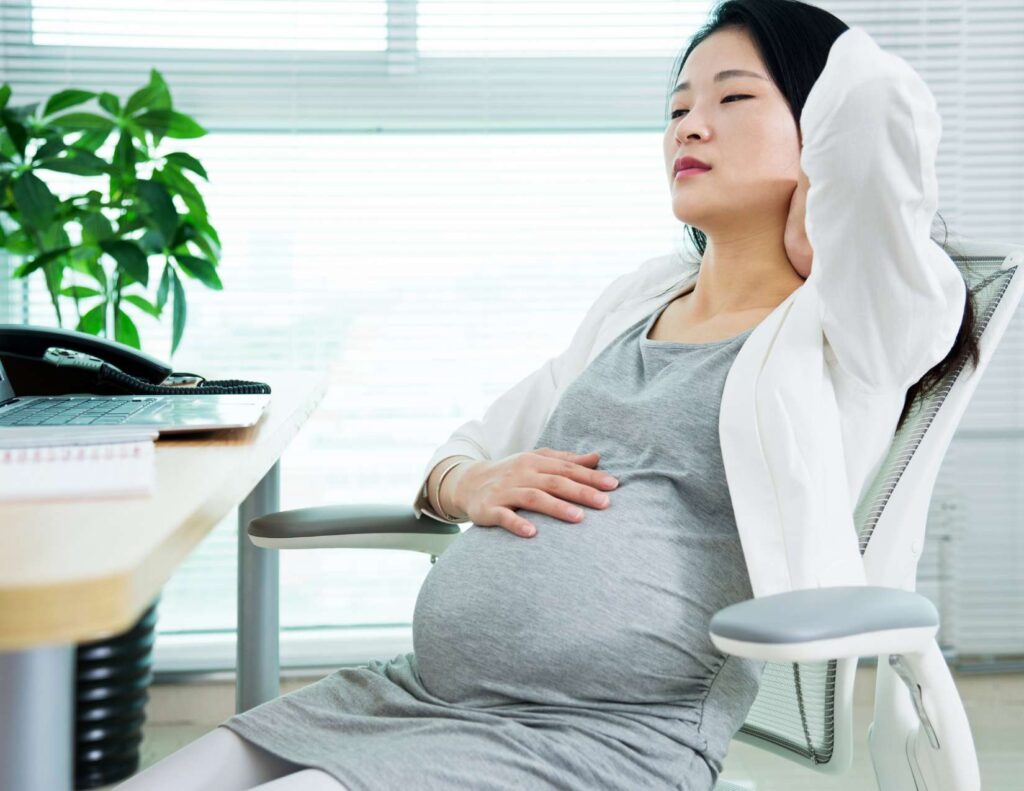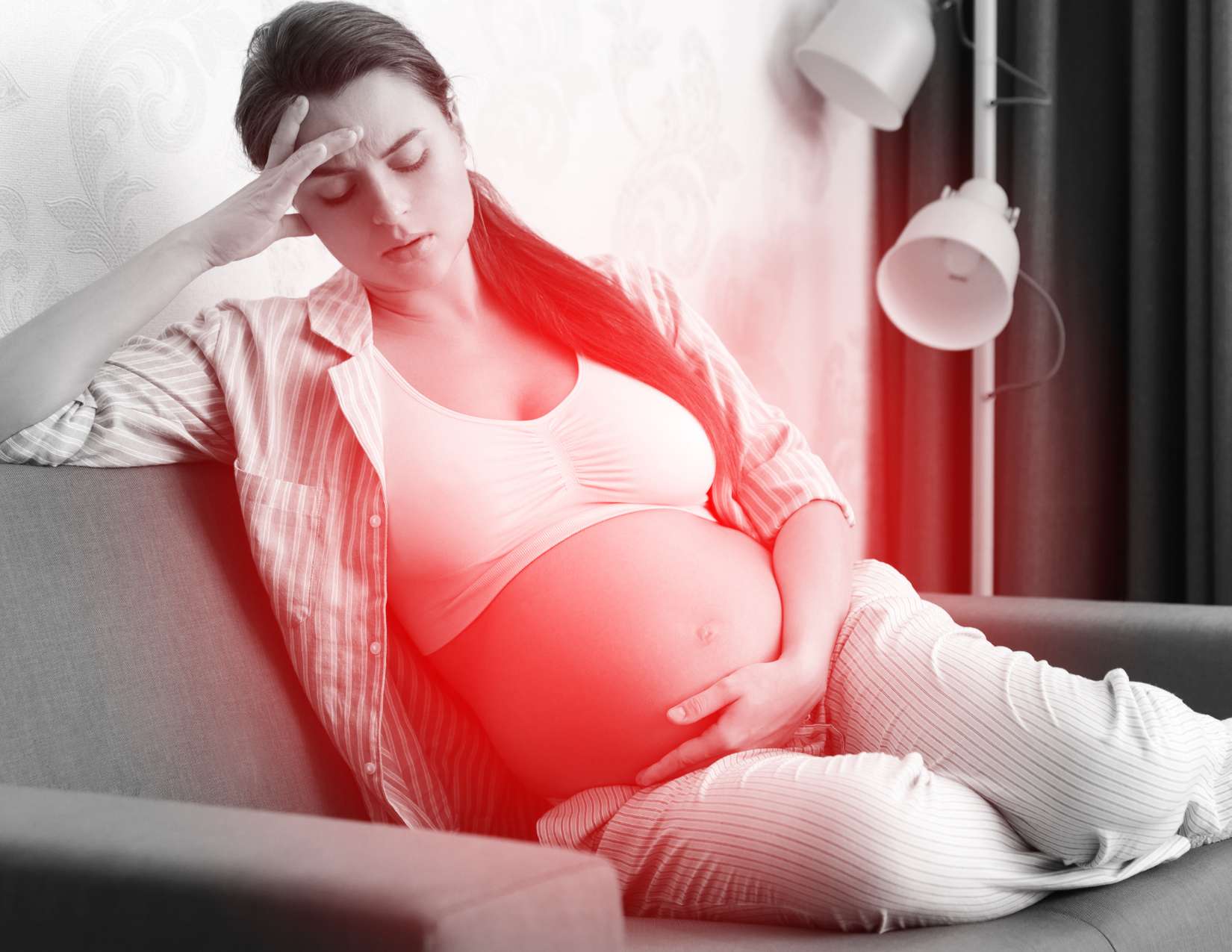Relieving Neck Pain During Pregnancy: Expert Tips for Moms-to-Be
Are you expecting a bundle of joy but finding yourself constantly plagued by neck pain? Pregnancy is an incredible journey, but it can also bring about various discomforts, and neck pain is one of them. As your body undergoes significant changes, the strain on your neck and shoulders can intensify, leaving you feeling stiff, sore, and frustrated. But fear not, relief is within reach! In this article, we will delve into the causes of neck pain during pregnancy and explore effective strategies to alleviate your discomfort.

Table of Contents
Understanding neck pain during pregnancy
During pregnancy, our bodies go through numerous changes, and unfortunately, one common discomfort many women experience is neck pain. It can range from a mild ache to a sharp, shooting pain, making it difficult to go about our daily activities. Understanding the causes of neck pain during pregnancy is crucial in finding relief.
The extra weight gain during pregnancy puts pressure on our neck and spine, leading to muscle strain and tension. Pregnancy hormones also play a role, causing ligaments and joints to loosen, increasing the risk of injury. Additionally, poor posture can exacerbate neck pain, as the body’s center of gravity shifts with a growing belly.
Causes of neck pain during pregnancy
There are several causes of neck pain during pregnancy that expecting mothers should be aware of. As mentioned earlier, the weight gain during pregnancy puts additional strain on the neck and spine, leading to muscle tension and discomfort. Hormonal changes also contribute to neck pain, as they cause ligaments and joints to become more lax, making them more prone to injury.
One of the most common causes of neck pain during pregnancy is poor posture. As the baby grows, the body’s center of gravity shifts forward, causing the shoulders to round and the head to jut forward. This position puts strain on the neck and upper back muscles, resulting in pain and discomfort.
Neck pain during pregnancy: First Trimester
In the first trimester of pregnancy, neck pain can be caused by the morning sickness associated with pregnancy. During this time, many women are prone to nausea, vomiting and headaches, which can lead to difficulty sleeping in a comfortable position. As a result, neck muscles might become tense or sore due to poor sleep posture.
Additionally, if a woman experiences sudden growth during early pregnancy, her neck will have to adjust and compensate for the change in body weight. This can lead to tension in the neck muscles, resulting in pain.
Neck Pain During Pregnancy: Second Trimester
In the second trimester of pregnancy, most women experience a surge of energy due to the baby’s growth which causes the body’s center of gravity shifts even further forward. As a result, women are likely to experience neck and upper back pain due to the extra strain on their necks and upper backs.

Neck pain during pregnancy: Third Trimester
During this stage of pregnancy, the baby’s growth can cause a woman to experience even more neck pain. This increased strain on her neck and upper back is due to the additional weight carried in front of her body. Poor posture and lack of adequate rest may also contribute to neck pain and added lower back pain during this stage of pregnancy.
The impact of poor posture on neck pain during pregnancy
Maintaining good posture is crucial for alleviating neck pain during pregnancy. Poor posture, such as slouching or hunching the shoulders, puts unnecessary strain on the neck and upper back muscles. As the baby grows, the weight distribution in a pregnant woman’s body changes, and maintaining proper alignment becomes even more important.
One way to improve posture is by being mindful of how we sit and stand. Sitting up straight with the shoulders back and the chin tucked in helps to maintain proper alignment and reduce strain on the neck. Using a chair with proper lumbar support can also help in maintaining good posture. Additionally, avoiding high heels and opting for supportive and comfortable shoes can contribute to better posture.

10 Expert tips for relieving neck pain during pregnancy
- Stay active: Regular exercise like these chiropractic neck exercises can help strengthen the muscles supporting the neck and alleviate pain. Low-impact activities like swimming, walking, and prenatal yoga are excellent options for pregnant women.
- Practice good posture: As mentioned earlier, maintaining proper posture is crucial for reducing neck pain. Be mindful of your spine while you sit, stand, and walk, and make an effort to keep your shoulders back and your chin tucked in.
- Take breaks: If you have a desk job or spend long hours sitting, be sure to take regular breaks to stretch and move around. Sitting for extended periods can worsen neck pain, so it’s essential to incorporate movement into your day. You can also look into the best desk chairs for pregnancy to help reduce any pain or discomfort.
- Use heat and cold therapy: Applying a warm compress/heating pad or taking a warm shower can help relax tense muscles and reduce pain. On the other hand, using cold packs or ice packs wrapped in a towel can numb the area and reduce inflammation.
- Practice relaxation techniques: Stress and tension can exacerbate pain and result in tension headaches. Engaging in relaxation techniques such as deep breathing, meditation, or prenatal massage is a great way to help relieve muscle tension and promote overall well-being.
- Support your neck while sleeping: Investing in a supportive pillow that promotes proper alignment of the head and neck can make a significant difference in reducing neck pain during pregnancy. Look for pillows specifically designed for pregnant women or those that provide adequate neck support.
- Adjust your sleep position: Sleeping on your side with a pillow between your knees can help align your spine and alleviate strain on the neck. Avoid sleeping on your stomach as it can put undue pressure on the neck and spine.
- Use supportive pillows and cushions: In addition to a supportive pregnancy pillow for sleeping, using additional support pillows or cushions to support your back and belly while sitting can help maintain good posture and reduce strain on the neck.
- Seek professional help: If your neck pain persists or becomes severe, it’s essential to seek professional help. A chiropractor experienced in treating pregnant women can provide targeted treatments and exercises to alleviate your pain. A physical therapist can help you develop an exercise routine to strengthen your neck, back, and core muscles. Physical therapy can also help you maintain good posture as your body changes throughout the later stages of pregnancy.
- Consider alternative therapies: Acupuncture, prenatal massage, prenatal yoga and home remedies are alternative therapies that can provide relief from neck pain during pregnancy. Studies have shown that pregnant women utilize complementary and alternative therapies for their back or neck pain.

When to seek immediate medical attention for neck pain during pregnancy:
• Numbness or tingling in the arms, hands, legs or feet.
• Severe pain that doesn’t get better after a few days of rest and self-care measures.
• Difficulty standing, walking or performing daily tasks due to neck pain.
• Pain that radiates down your arm or leg.
• Weakness in the arms, hands, legs or feet.
• A fever of 100.4°F (38°C) or higher.
• Unusual headaches that don’t improve with rest.
Some common symptoms of preeclampsia are severe neck pain, headache, high blood pressure, vision changes, sudden swollen hands and feet, nausea or vomiting. If you experience any of these symptoms, contact your healthcare provider immediately for medical advice.
If you experience any of these symptoms, contact your health care provider right away. They will be able to recommend the best course of action for your specific situation. Remember, if you’re pregnant, don’t take any medication or perform any treatment without consulting with your healthcare provider first.

Conclusion: Enjoying a pain-free pregnancy with these expert tips
Experiencing neck pain during pregnancy can be challenging, but with the right knowledge and techniques, relief is possible. By understanding the causes of neck pain, practicing good posture, and incorporating expert tips into your daily routine, you can minimize discomfort and enjoy a pain-free pregnancy. Remember to consult with your healthcare provider before trying any new treatments or exercises to ensure their safety for you and your baby. Embrace these expert tips, and say goodbye to neck pain during pregnancy!






